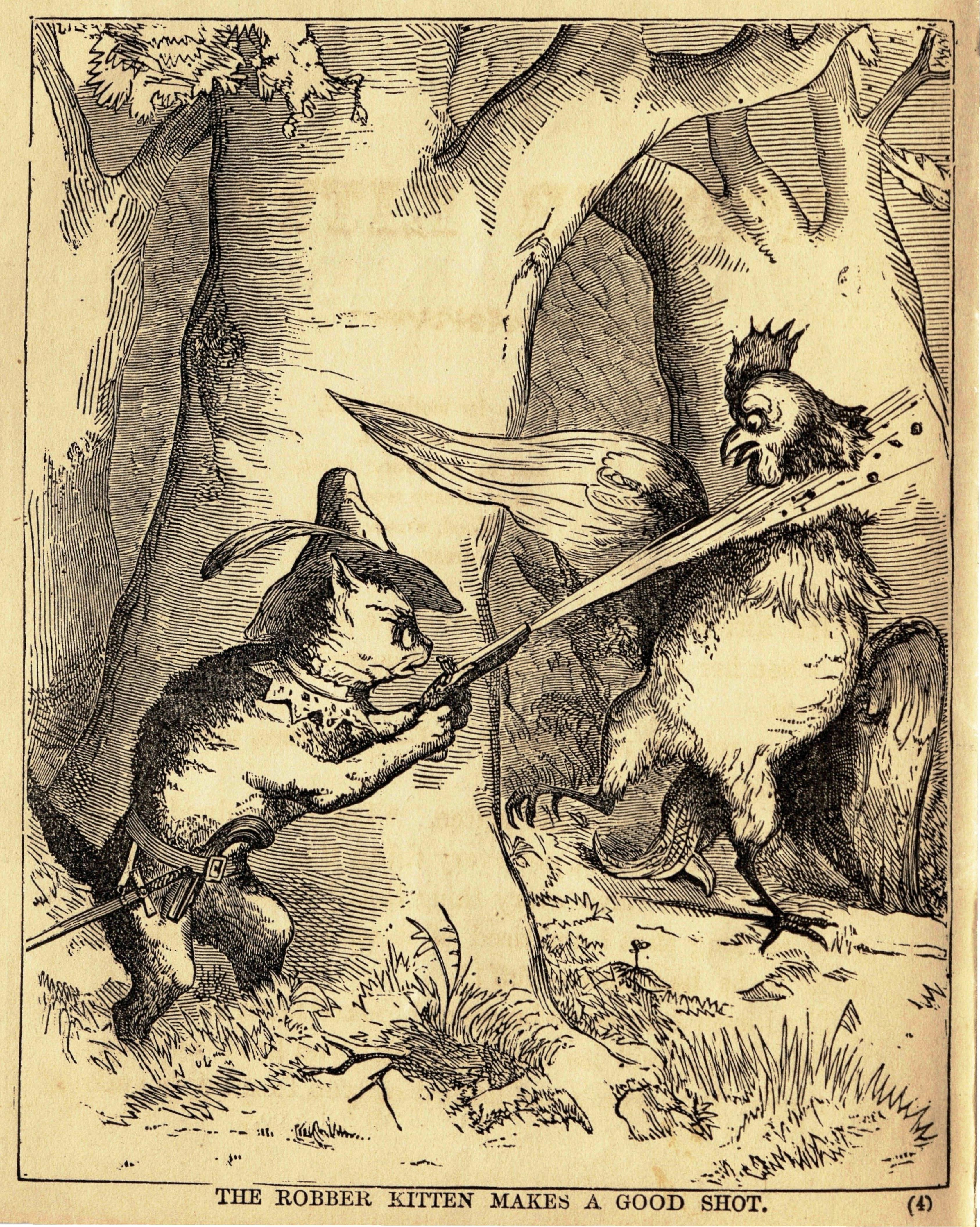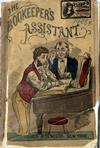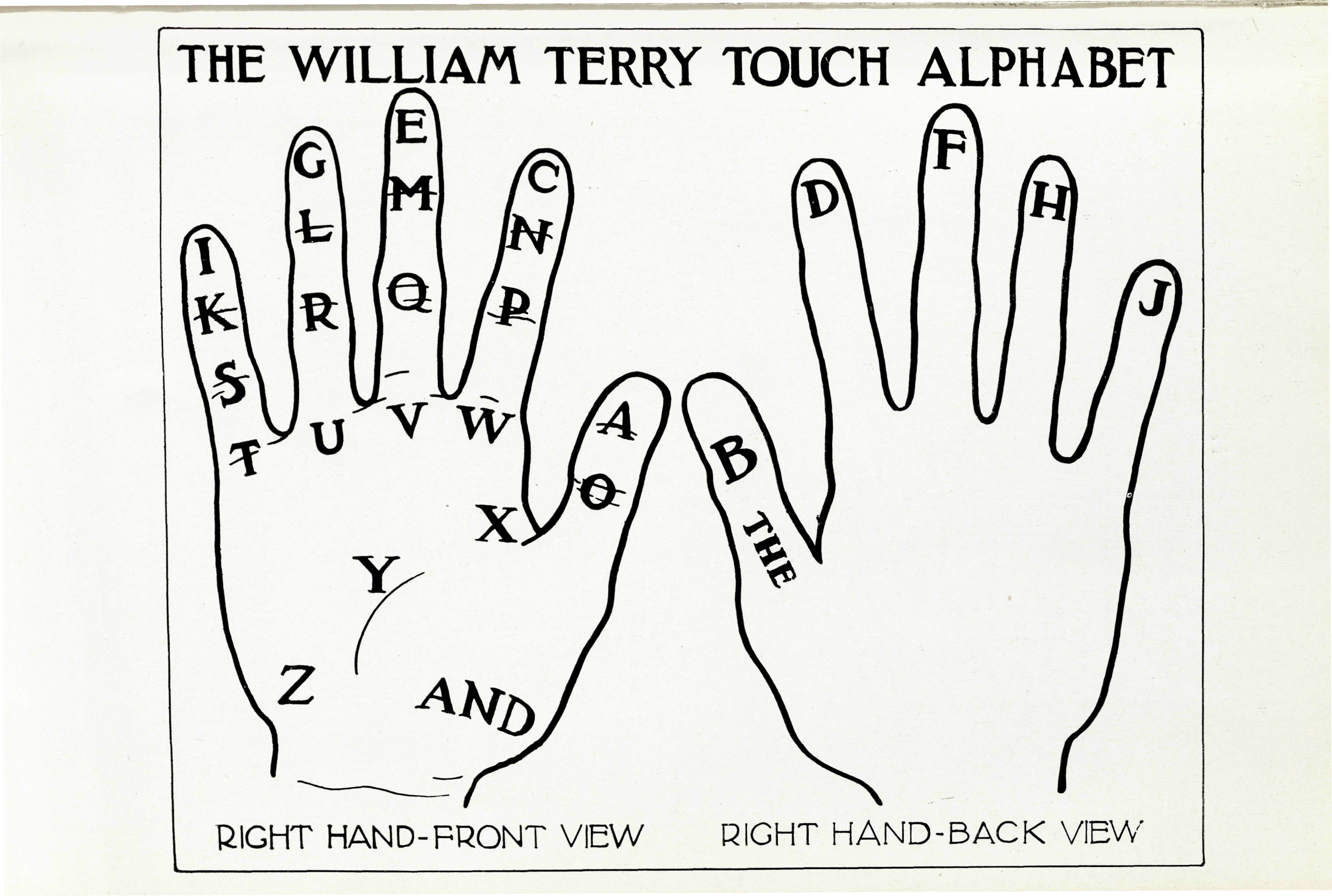Anarchists, Talking Gloves, Fraternal Owls, and a Feline Brigand: Highlights from American Pamphlets, 1820-1922

American Pamphlets, Series 1, 1820-1922: From the New-Historical Society offers an exceptional cross section of one hundred years of American society. The March 2014 release includes pamphlets providing a sympathetic review of the case against the anarchists involved in the bombing of Chicago’s Haymarket Square, an innovative tool for aiding blind and/or deaf veterans returning from World War I, and the rather bizarre initiation ceremony of a New York social club. Other intriguing items include a bookkeeping handbook full of clever tips and an illustrated children’s story that may have even caused the Brothers Grimm to blanch.
The Robber Kitten (1863)
By Comus
While the do-not-steal theme of this children’s book is timeless, its relatively graphic violence would likely horrify many of today’s parents and teachers. After shooting a chicken and robbing a cat, this book’s kitten “gets his due reward in the form of a wallop to the head at the paws of a dog.

The Book-keepers' Assistant. Being a Complete and Concise Method of Calculating the Cost of All Kinds of Merchandise. (1869)
This handy pamphlet contains many tricks to quickly balance ledgers, calculate costs and profits, and boilerplate information for, according to the subtitle, “mortgages, deeds, drafts, notes, checks, receipts, agreements, contracts, &c., latest internal revenue taxes, stamp duties and miscellaneous matter.” The back matter includes full-page advertisements for other pamphlets, including “The Little Flirt!,” “Can-Can Songster,” and “The Little Fascinator...Containing Five Things That Every Sweetheart and Lover Should Know.”

The Trial of the Judgment. A Review of the Anarchist Case (1880)
By Gen. M.M. Trumbull.
Per the decision of an earlier American labor convention, the eight-hour work day would become standard on May Day, 1886. On that day, hundreds of thousands of workers went on strike, and the cry "Eight-hour day with no cut in pay" was heard at rallies throughout the United States. Three days later, police fired into a crowd of strikers near the McCormick Harvesting Machine Company in Chicago. In response to the violence, handbills calling for a rally the next day at Haymarket Square were quickly distributed. Some included a call to arms. The violence that ensued on May 4, 1886, has long been shrouded in mystery, and the trial of the accused did nothing to quell the controversy. Matthew Mark Trumbull called for clemency and questioned the court’s ruling, saying, “The decision of the Supreme Court ends the trial of the Anarchists, but not the trial of the judgment.”

Constitution and By-Laws of the Owl Club (1890) and Initiation (1904)
By the Owl Club
According to their constitution, the object of the Owl Club was “to associate together for social recreative, athletic, benevolent, literary, musical and dramatic purposes, for intellectual improvement and fraternal association of its members.” On the other hand, according to their initiation process, how members held their drinks seemed to be of perhaps greater importance. After confirming the payment of membership fees, the Presiding Owl asks Owl Candidates to swear “hereafter when taking a social drink in the presence of a brother owl use your left hand in so doing.” And to swear that if caught in the act of drinking with their right hand by a brother owl they will “pay the penalty of the offence, which is then and there ordering and paying for one round of drinks for all brother owls present.”
Talking Gloves for the Deaf and Blind. Their Value to Men Injured in the Present War (1917)
By Harold Terry Clark
World War I is often described as a clash of 19th-century tactics and 20th-century technology. The field telephone and wireless communication, aerial reconnaissance, and armaments such as the flamethrower, light automatic and submachine guns, to say nothing of chemical weapons, all contributed to the modernization of warfare and the reorganization of military forces. Interestingly, in an attempt to assist blind and/or deaf veterans, a little-known, yet centuries-old technology was re-introduced. Harold Terry Clark describes “the use of a touch alphabet with a so-called ‘talking glove’.”

For more information about American Pamphlets, 1820-1922, or to request a trial for your institution, please contact readexmarketing@readex.com.



